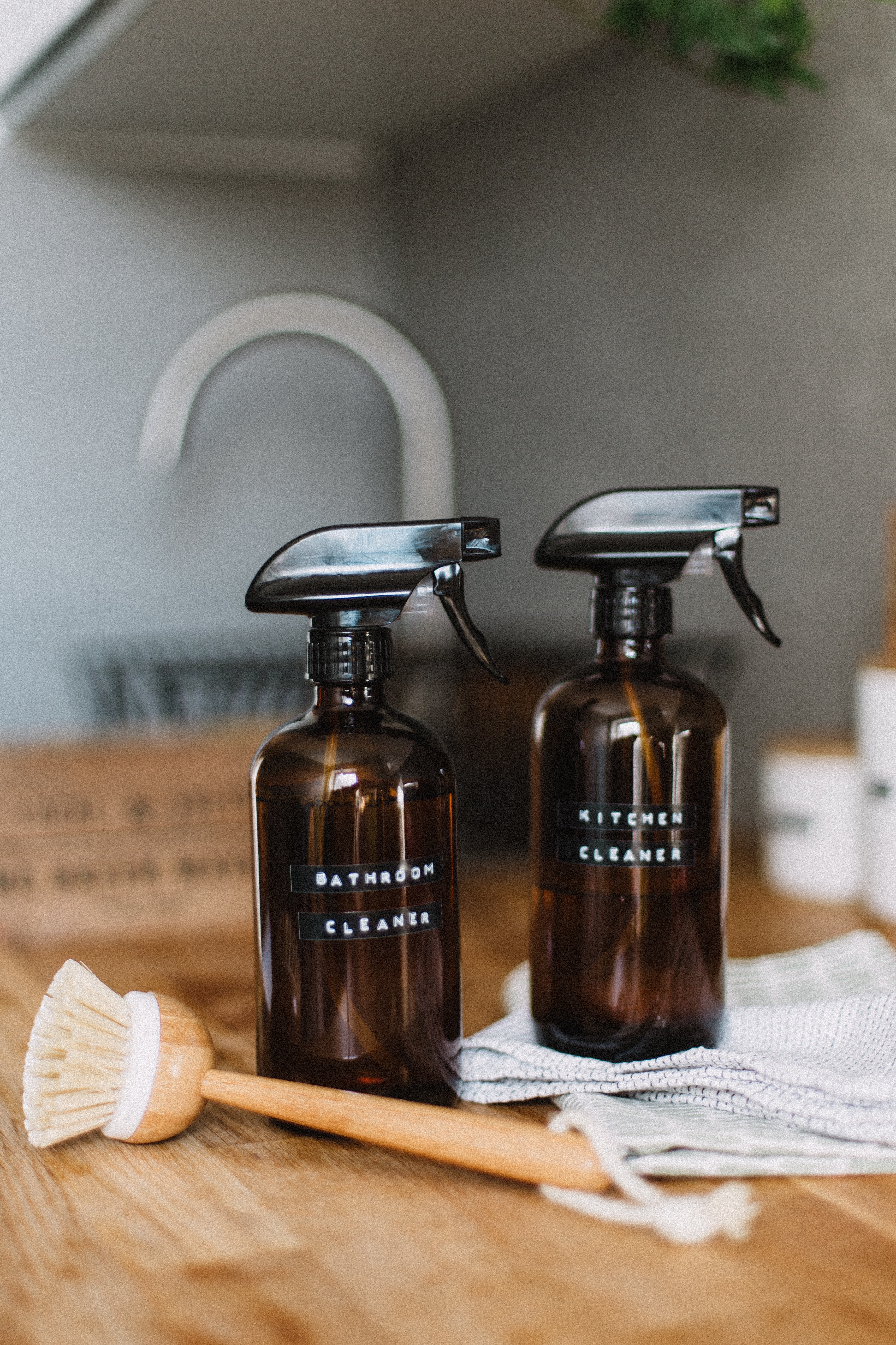

Have you ever wondered where all the cleaning detergents you use at home go after washing them away with water? Or what substances do they contain, and what effect do those chemicals have on the world around you? Let’s look closer at that!
Cleaning detergents often contain chemicals (such as surfactants and disinfectants) that can be harmful to aquatic life and ecosystems when they enter rivers, lakes, and oceans, as they do not easily degrade in the environment. Not only the aquatic life is in danger. The use of cleaning products can also harm wildlife and deplete natural resources.
Not to mention the negative impact of the production and disposal of cleaning products, which can lead to greenhouse gas emissions and air pollution, as well as the packaging which contributes to waste and plastic pollution.
Sounds devastating, right? But is there anything we can do to change that?
YES, and it’s simple! The answer is to start using natural cleaning products!

Natural cleaning products are often made with biodegradable and plant-based ingredients, which can break down more easily in the environment and reduce pollution in waterways. They can be just as effective as traditional cleaning products, and in some cases even more effective, without causing harm to the environment or human health. They are easy to find in any shop, and if you would like to go for something fancier you can prepare your own Natural Cleaning Solution.
Baking soda is a perfect cleaner and deodorizer.
How to use it: Sprinkle baking soda directly onto the area and scrub; another option is to mix baking soda with water to form a paste and scrub the dirty surface.
Corn starch is a great alternative to clean and polish windows, fiberglass doors, and other glass surfaces.
How to use it: 100 ml of cold water mixed with 5 tablespoons of cornstarch. Mix until cloudy. Use a sponge to wash the window.
Unscented soap it’s a natural soap that does not contain artificial dyes or additives. It can be used to clean a variety of surfaces.
How to use it: apply on the surface and scrub, wash away with water.
Lemon contains powerful natural acids, so you can use it to remove grease and sterilize the surface.
Distilled white vinegar is a multifunctional mild acid, which dissolves scale, inhibits mold, and cuts soap scum. It’s a great product to clean your bathroom and kitchen, as well as remove stains from coffee, rust, and tea.
How to use it: dilute distilled white vinegar in water in a ratio of 1:1, and spray on the cleaning surface. You can add a drop of essential oil to diffuse the vinegar's odor.
For more advanced cleaning:
Lemon, Salt & Vinegar: natural cleaning scrub, which will help you to remove baked-on grime on oven racks, clean the stove grates, or clean copper.
How to use it: mix 4 tablespoons of salt, 2 tablespoons of vinegar, and 2 tablespoons of lemon juice.
All-Purpose Cleaner: combine vinegar and water in a ratio of 1:1, add lemon rind, and fresh rosemary. Pour the mixture into a spray bottle, shake, and then let infuse for a week before using
Besides protecting aquatic- and wildlife, and reducing environmental pollution, you also reduce the use of plastic and save some money! Let’s calculate that, for example:
A bottle (750 ml) of an all-purpose cleaning product (Cilit Bang Schmutz & Hygiene) cost 6.95 CHF and comes in a plastic bottle with a spray diffuser.
The cost of preparing 750 ml of the above-mentioned All-Purpose Cleaner is 1.73 CHF (+ 2.95 CHF for a reusable spray bottle).
White Vinegar: 1l – 1.75 CHF
1 lemon: 0.45 CHF
Fresh rosemary: 2.4 CHF
Water
Cost: 4.6 CHF / 2 litter
Saving: around 60 CHF per year
That might not feel like a lot, but that plus protecting the environment - PRICELESS!
Overall, using natural cleaning products can help protect the environment, reduce pollution, and promote a healthier lifestyle. So, when you will be planning to clean next time, don’t forget to try one of the natural cleaning mixtures!
More information and sources:
Federal Office for the Environment FOEN, “Chemical Risk Reduction”: https://www.bafu.admin.ch/bafu/en/home/topics/chemicals/info-specialists/chemicals--regulations-and-procedures/detergents.html
European Commission, “Chemicals Strategy for Sustainability Towards a Toxic-Free Environment”: https://ec.europa.eu/environment/pdf/chemicals/2020/10/Strategy.pdf
Journal of Ecology and Environmental Sciences, Seujpriya Borah, B.Borooah College, Guwahati, Assam, “Adverse Effects of Different Detergents on Fish : A Review” https://www.rroij.com/open-access/adverse-effects-of-different-detergents-on-fish-a-review.pdf
More Natural Cleaning Products Ideas:
https://www.exteriormedics.com/blog/8-natural-cleaning-solution-alternatives
https://www.bhg.com/homekeeping/house-cleaning/tips/cleaning-with-vinegar/
https://www.bhg.com/homekeeping/house-cleaning/tips/get-things-clean-the-natural-way/
https://www.realsimple.com/home-organizing/green-living/natural-cleaning-recipes